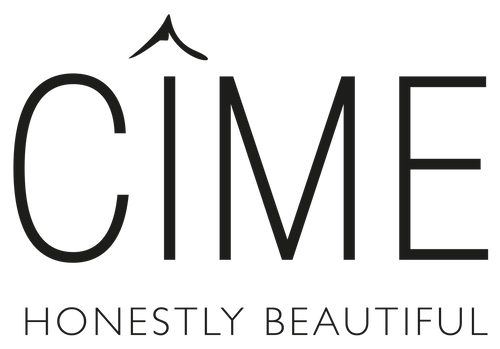Endocrine disrupting chemicals have recently made the media headlines as a result of a study by ‘Kom op tegen Kanker’, the Stichting Tegengif from the Netherlands and the Danish Consumers' Association warning about endocrine disrupting substances in perfumes and cosmetics.
At CÎME, we try to communicate in a positive way and to rely on the strength of our own ingredients, without tearing down other products. Nevertheless, we think it is important to inform you about this (not so positive) subject, so that everyone can make their own informed choice. So what are endocrine disruptors, what do they do in the body and which substances are best avoided?
What are endocrine disruptors and what do they do in the body?
An endocrine disruptor is an external substance that disturbs the hormone balance in your body. It can throw your body's own hormones out of balance in several ways: it can mimic the body's own hormones, block the body's own hormones or interact with the production, transport or metabolism of hormones. This can affect your own health or that of your baby. It can lead to diabetes, obesity, behavioural and concentration problems, reduced fertility and breast cancer, among other things.
Endocrine disrupting substances can be transferred from the mother to the foetus through the placenta and to the newborn through breast milk. Young children are also a vulnerable group as they are in full development.
Daily Exposure
How many personal care products do you use on a daily basis?
The research of ‘Kom op tegen Kanker’ shows that the average woman uses 12 to 16 cosmetic products per day. This means that every day you are exposed to more than 160 chemical substances, including hormone disrupting substances.
Endocrine disruptors are usually found in low concentrations in personal care products. In principle, this has only a limited effect on your normal hormone balance. This is therefore the excuse of many manufacturers: "there is only a small concentration of endocrine disruptors in the product I produce". But the danger lies in the "cocktail effect".
Say what? It is the prolonged exposure and use of several cosmetic products together that play a crucial role. This is called the "cocktail effect", it is the simultaneous exposure of many substances to very low concentrations, which individually have little or no effect but together can lead to a harmful effect.
Which substances should I avoid?
Avoid care products containing parabens and phenoxyethanol (typical preservatives in care products), phthalates (plasticisers), triclosan, benzyl salicylate, butylated hydroxytoluene (BHT) and butylphenyl methylpropional, ethylhexyl methoxycinnamate and synthetic colourants and perfumes. You can check this by reading the label carefully and checking the ingredients list for harmful substances.
The problem with synthetic perfumes, however, is that the manufacturer is not required to list the ingredients of this perfume in the ingredients list (for reasons of trade secrecy). Synthetic perfumes are a cocktail of ingredients of which you as a consumer, but also as a scanner app like Yuka for example, cannot know what is in it.
Want to be sure? Go for an organic label!
Reading and understanding an ingredients list is not easy, but a reliable organic label is. The CÎME products are all provided with an Ecocert label, according to the strict Cosmos standard. This label imposes strict criteria that your product has to meet. It guarantees environmentally friendly production and processing (fully organic, without pesticides), while also respecting human health. It also guarantees the absence of endocrine disrupting ingredients (such as parabens, phenoxyethanol, synthetic perfumes and colourants). So if you see an Ecocert label on a product - or another reliable organic label - you can be 100% sure that it is completely free of endocrine disruptors.
Be careful though, words like 'organic' and 'natural' are not legally protected. Only with an organic label from an independent body such as Ecocert, BDIH or Natrue, can you be sure that everything has been thoroughly checked. To dispel a myth: an organic certificate such as Ecocert is not expensive at all. As a manufacturer, you only have to be prepared to submit to very strict requirements and checks.
Some more easy tips & tricks:
- Try to reduce your daily exposure to perfume. Adding up all the substances from your personal care and cleaning products results in a cocktail of chemicals. It therefore makes sense to try and minimise your exposure to fragrances. Alternatively, use fragrance-free personal care products, use perfume only on special occasions and spray it on your clothes instead of your skin.
- Look for care products with an official organic label; substances with hormone disrupting properties are not allowed.
- Wash new clothes, sheets and other products before using them. New kitchen equipment should also be washed first.
- Wash your fruit and vegetables properly to remove any pesticides.
- Choose glass or porcelain when heating your food. When you heat up plastic, harmful substances can be released and transferred to the food.
Let's be #honestlybeautiful!


Back to Blog